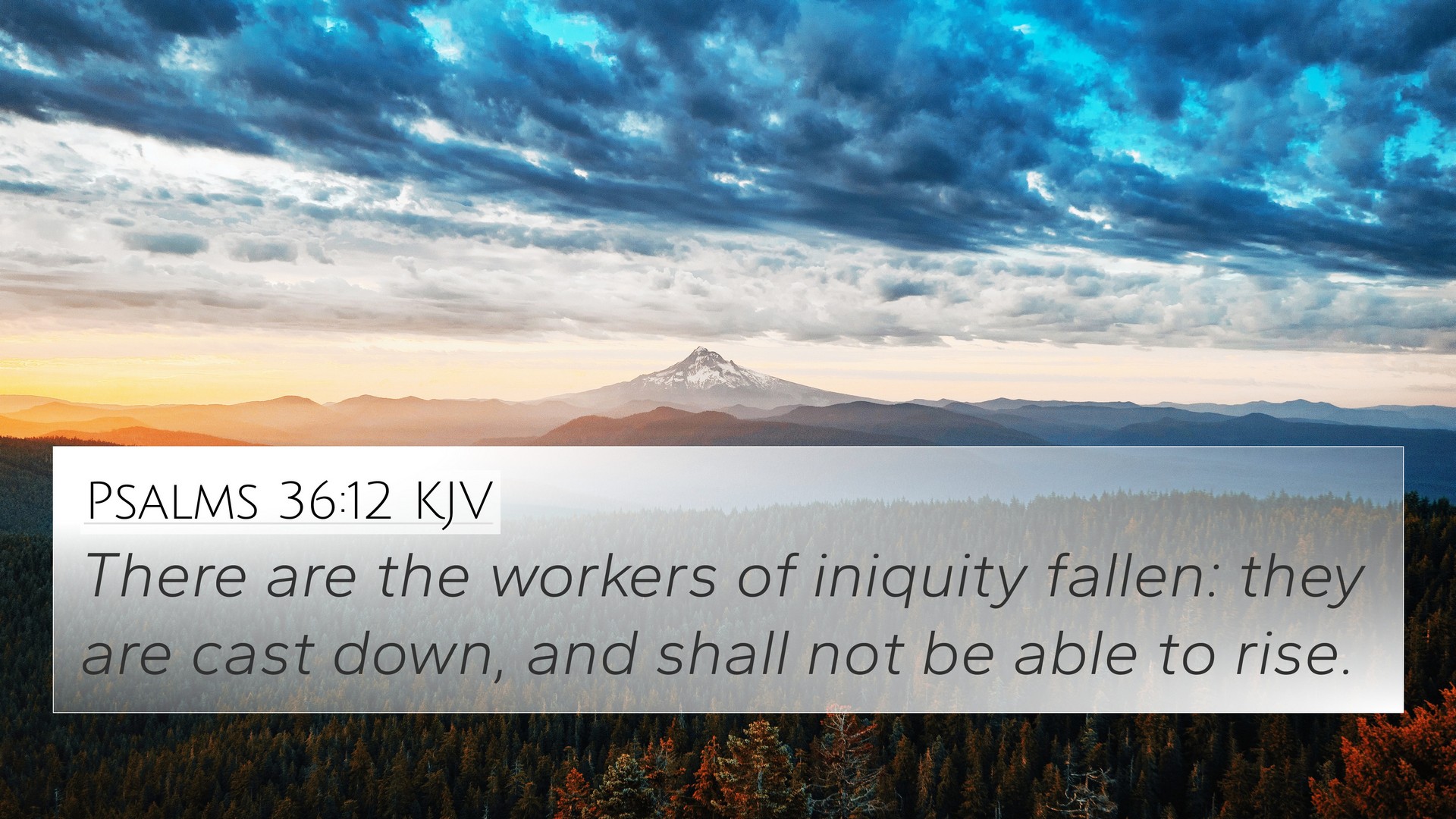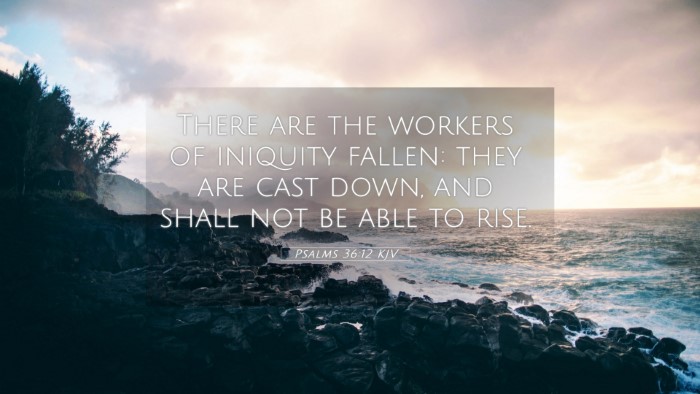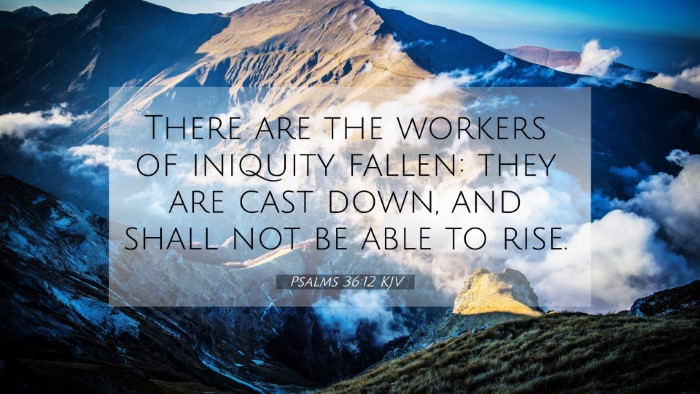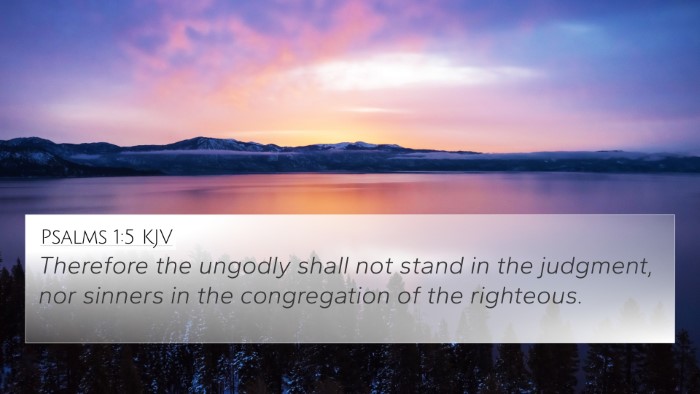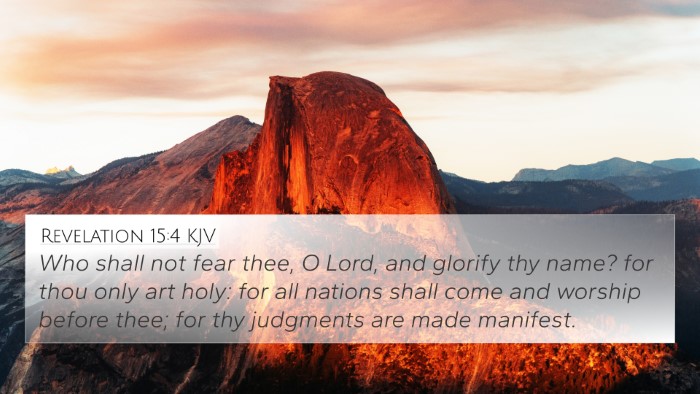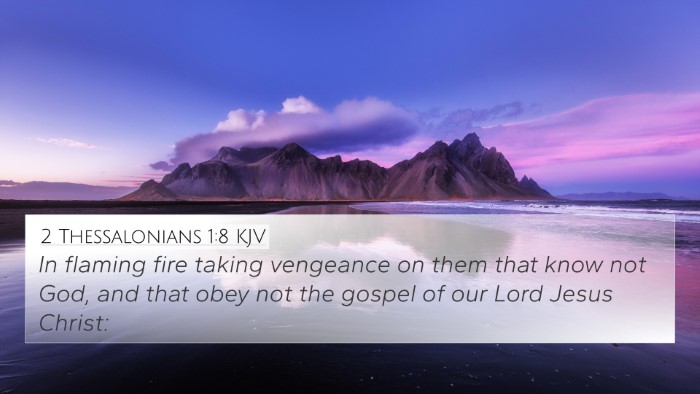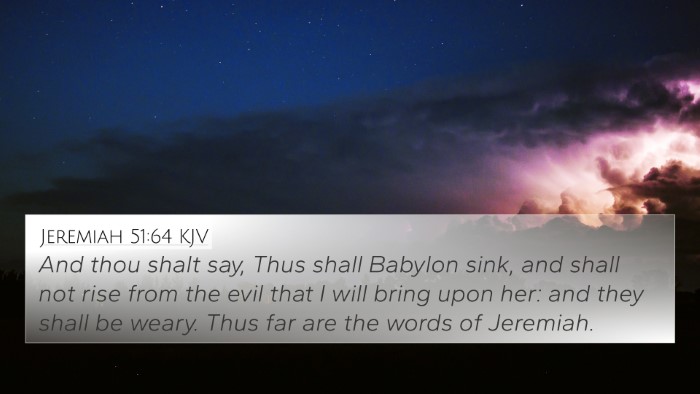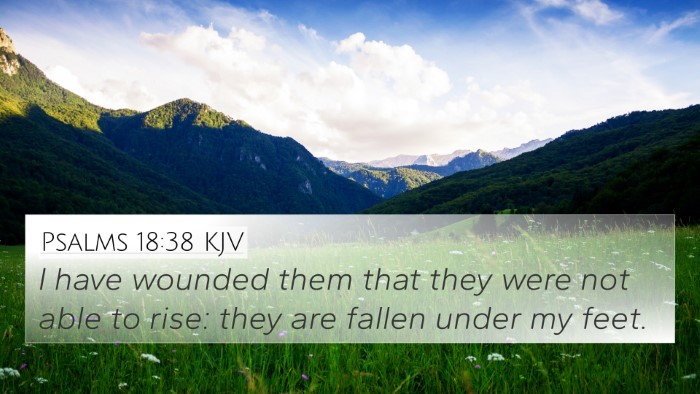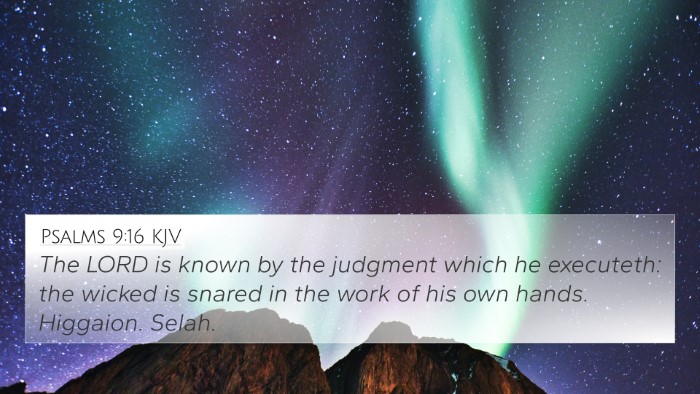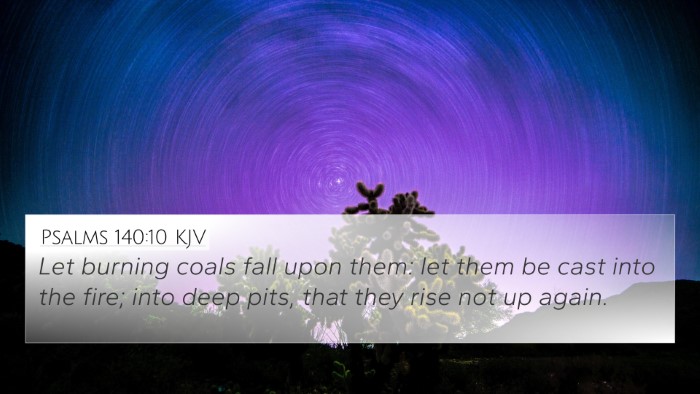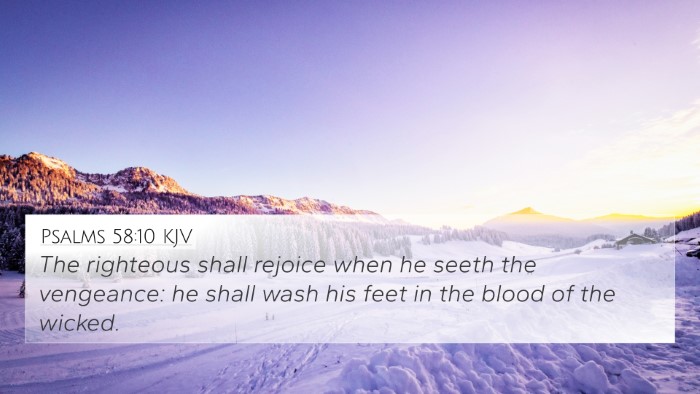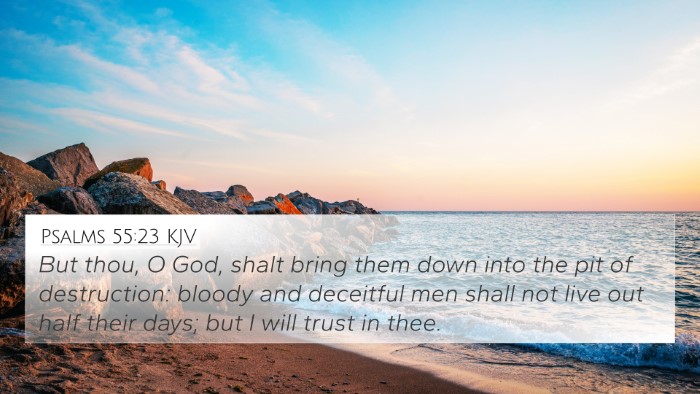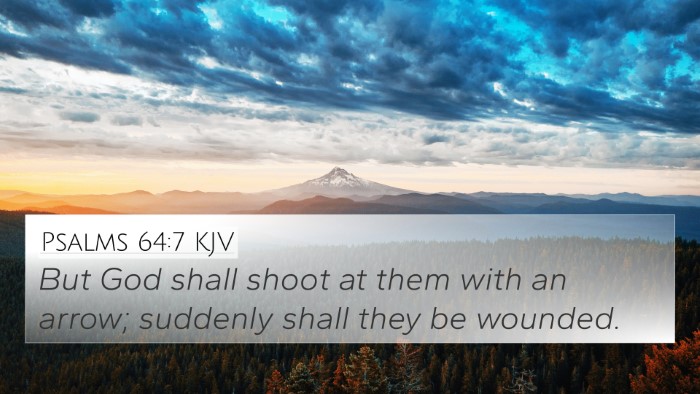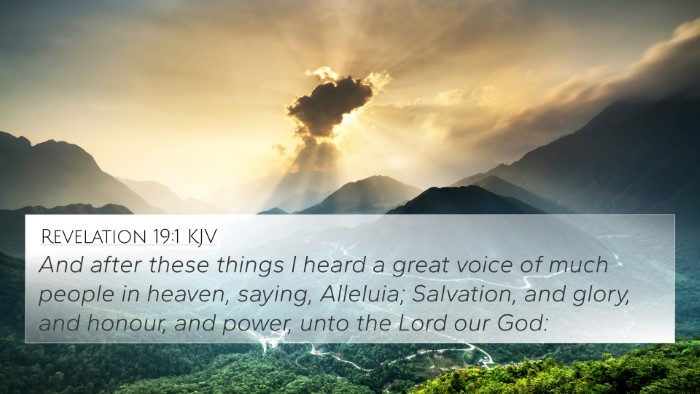Psalms 36:12 - Verse Meaning and Interpretation
Psalms 36:12 states: "There are the workers of iniquity fallen: they are cast down, and shall not be able to rise."
Summary of Insights from Commentaries
This verse encapsulates a profound warning against wickedness, portraying the ultimate fate of those who pursue evil. Insights from public domain commentaries contribute to a nuanced understanding of this text.
Matthew Henry's Commentary
-
Destruction of the Wicked: Henry emphasizes the certainty of judgment that awaits those who indulge in sin. Their fall is depicted not just as metaphorical but as a literal, divine consequence of their actions.
-
Contrast with the Righteous: Henry often juxtaposes the fate of the wicked with the blessedness of the righteous, highlighting that while the wicked fall, the righteous are upheld by God's grace.
Albert Barnes' Notes
-
Permanence of Their State: Barnes points out that once the wicked are brought down, their failure to rise signifies a finality in their judgment. This underscores a theme of permanence in divine justice.
-
Their Inability to Recover: In Barnes’s view, the inability of the workers of iniquity to stand again serves as a warning to those engaged in sin, suggesting a proverbical “point of no return.”
Adam Clarke's Commentary
-
Context of Wrath: Clarke discusses the context in which this verse is set, urging readers to consider the impending judgment on iniquitous actions within the broader narrative of Psalms, which often reflects on divine justice.
-
Scriptural Reference: Clarke often makes cross-references to various Biblical texts to affirm that the themes prevalent in Psalms 36:12 resonate throughout Scripture, including Proverbs and the prophetic writings.
Cross-References for Deeper Understanding
For a comprehensive study of this verse, consider these cross-references:
- Proverbs 4:19: "The way of the wicked is as darkness: they know not at what they stumble."
- Psalm 1:6: "For the LORD knoweth the way of the righteous: but the way of the ungodly shall perish."
- Isaiah 57:20-21: "But the wicked are like the troubled sea, when it cannot rest, whose waters cast up mire and dirt."
- Romans 6:21: "What fruit had ye then in those things whereof ye are now ashamed? for the end of those things is death."
- 2 Peter 2:9: "The Lord knoweth how to deliver the godly out of temptations, and to reserve the unjust unto the day of judgment to be punished."
- James 4:6: "But he giveth more grace. Wherefore he saith, God resisteth the proud, but giveth grace unto the humble."
- Galatians 6:7: "Be not deceived; God is not mocked: for whatsoever a man soweth, that shall he also reap."
Thematic Bible Connections
The themes presented in Psalms 36:12 extend across both testaments. Key themes include:
- Judgment and Justice: The certainty of God's judgment on sin is echoed in both Old and New Testament writings.
- Final Outcomes: The concept of eternal outcomes based on one’s moral choices surfaces in parables and teachings of Jesus.
- Grace and Redemption: The contrast between the fate of the wicked and the grace available to the righteous is explored throughout scripture.
Tools for Bible Cross-Referencing
To enhance your own study of Psalms 36:12, several tools can facilitate deeper exploration:
- Bible Concordance: A helpful resource for identifying specific terms and themes across scripture.
- Bible Cross-Reference Guide: This guides readers in discovering related verses easily.
- Bible Chain References: These interlinked verses provide a seamless way to study correlated themes.
Final Thoughts
Psalms 36:12 serves as a poignant reminder of the consequences of iniquity within the biblical narrative. By engaging with this verse and its corresponding commentary, themes, and cross-references, readers can enhance their understanding of Scripture while discovering the interconnectedness of God's Word.
